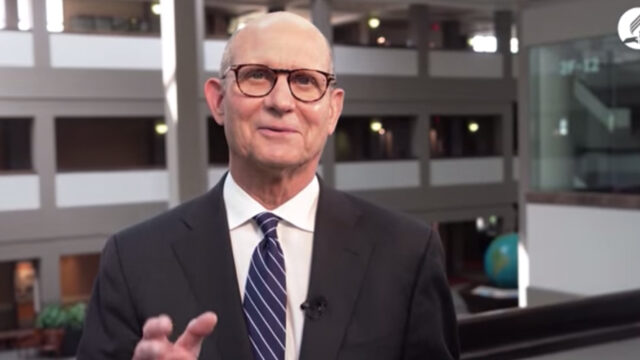Despite 2020 physical limitations, GAiN event showed that God is still at work, leaders said.

Due to the coronavirus, the 17th Global Adventist Internet Network (GAiN) Conference was held virtually from November 30 to December 3, 2020. Three thousand people registered from the Philippines, Ukraine, Indonesia, the United Kingdom, Lebanon, the Caribbean, Russia, and many other countries.
GAiN is a community of Adventist media professionals from around the world, whose goal is to “foster the use of communication, technology, media, and the internet to help the Adventist church carry out its mission,” according to its website. For the past 16 years, the network has held annual conferences to “educate, train and collaborate on finding new ways to reach communities” with the gospel, according to AdventWeb. The conferences are organized by the denomination’s Communication Department and the Office of Global Software and Internet.
The theme for GAiN 2020 was “I Will Go — Exploring Our Digital Future,” a title that leaders believe mirrors the strategic focus of the Adventist Church. The conference featured testimonies from people succeeding in ministry in the digital world; short reports from world church regions; and training sessions by experts who shared best practices and tips.
Keynote presentations included remarks by Tim Sanders, a New York Times bestselling author. He is vice president of Customer Insights for Upwork, an online platform that connects businesses with freelance talent from around the world. Martha Gabriel, an internationally acclaimed writer, author, speaker, and researcher, also presented.
Sanders spoke specifically on the benefits of hiring independent contractors. Referencing Melissa Valentine from the Center of Work, Tech, and Organizations at Stanford University, Sanders said that in the future, many organizations are going to transition to a smaller core group of “full-time team members who bring all the specialized skills in at the cloud level working on demand. And, since [the organization] is only paying for consumption … they actually get more people working on their problem.” This allows organizations, such as the Adventist Church and its entities, to produce a higher volume of quality material faster than they would’ve been able to create otherwise.
Gabriel touched on innovation and creativity in the digital age. She emphasized that technology plays a huge role in reshaping societal reality. And with the new reality of the world in which we live, with the explosion of the Zoom era and media saturation, the question is how to stand out to make a difference.
Social Media and God’s Last Message
During his segment on December 2, Mark Finley reminded participants that “Seventh-day Adventists are a people of destiny. God has raised up our movement to proclaim His last-day message with the world.” Referring to the three angels’ messages in Revelation 14:6, Finley pointed out three things: the message is urgent, it is universal, and it is eternal. It is never irrelevant. “I’m convinced that one of the ways God is using and will continue to use in the future to spread His message of the three angels is by internet, social media, and YouTube.”
Finley has seen this new reality in a personal way with his local church in Virginia, United States. The congregation’s YouTube ministry has expanded exponentially over the past four years under the leadership of member Matt Gray. For example, a video on the Bible book of Daniel published on its YouTube channel in 2016 gained about 30,000 views in three and a half years. That same video, after some trimming and optimizing, now has 950,000 views.
This is something every church can do, Gray explains. “If you are trying to create video content, if you are trying to reach a group of people or the world with the Advent message, you just simply cannot ignore optimization; you cannot ignore YouTube, the largest video viewing platform in the world,” he said. The church’s ministry channel has views from every country that allows YouTube.
During the conference, one especially inspiring testimony came from Angelyn, a young Filipino woman who has been working as a social media missionary for almost four years. The 17-year-old shared that when she started her online ministry, she went in blindly. No one offered help, and she was nervous to ask her pastor for assistance. As the ministry began to grow and spread across the Philippines, it soon became too much for her, and she cried out to God for help. “I can’t do this, Lord,” she prayed. “I’m still young, Lord! I don’t know how to handle this mission.” She felt discouraged and alone.
Then came the pandemic. Angelyn says she was able to use her social media platform to encourage others with the gospel who are also experiencing depression. “I never thought I could do such a thing!” Angelyn exclaims. “As a 17-year-old girl, with no expertise in such things. I’m not in IT, I’m not a teacher, and I’m not good in English, but God used me in the ministry, and I’m so blessed by that.”
This is just one example of how Adventist communicators are using their influence and digital platforms to “reach a world in desperate need of the hope that only a relationship with Jesus can bring,” as the GAiN site notes. Despite her limitations, Angelyn was able to make a difference in the lives of hundreds of others, touching them emotionally and spiritually from the screen of her phone.
As associate communication director Sam Neves said in response to Angelyn’s testimony, “If 10 percent of people had your passion, Jesus would have already come.” This is something that everyone, everywhere can do to reach people for Jesus, he said.
The original version of this story was posted by the Adventist News Network.








